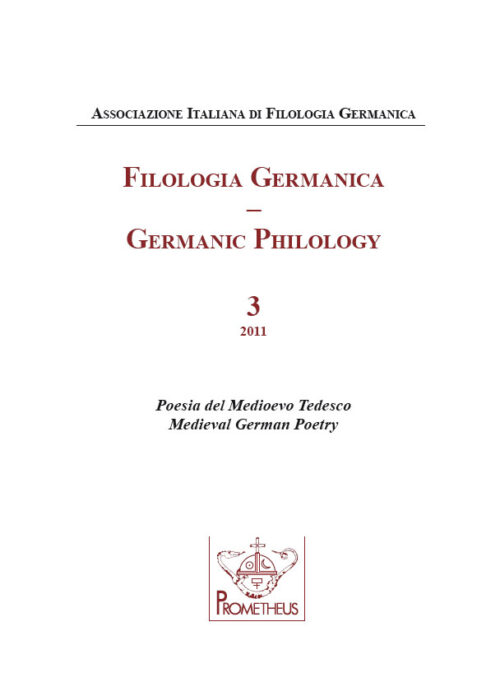Wolframs Parzival und das Problem des festen Textes: Die Varianten des Bogengleichnisses
DOI:
https://doi.org/10.14672/fg.v3i.2617Abstract
WOLFRAM’S ‘PARZIVAL’ AND THE PROBLEM OF THE STABLE TEXT: THE VARIANTS OF THE BOW PARABLE. All of today’s editions of Wolfram’s Parzival continue to be based on Lachmann’s 1833 edition. They will soon be replaced by a computer-generated edition, whose editors will be harnessing the principles of the New Philology. This postmodern theory presupposes that the medieval vernacular is fundamentally incompatible with the notion of a stable text; it also postulates that all manuscripts are of equal value. But this calls into question the very notions of author and text. Above and beyond its philological foundations, parts of which can be easily grasped, the New Philology also aims to abolish humans, and human agency, as the subject of history. However, many of their more practical demands have long become common currency. This essay uses Wolfram’s Parzival to study the problem of the instable text in order to demonstrate that its textual history provides no reason not to consider this text as a work, nor to treat Wolfram as anything other than an author in the modern sense of an author-subject. The recent notion of three ‘Leithandschriften’, which postulates, next to the groups *D and *G, the existence of a further group *T, of which precisely the oldest Parzival relic is a part, confirms this thesis, which is illustrated here by using the *T-variant of the bow parable.
Pubblicato
Fascicolo
Sezione
Licenza

Questo lavoro è fornito con la licenza Creative Commons Attribuzione - Condividi allo stesso modo 4.0.
CC-BY-SA



